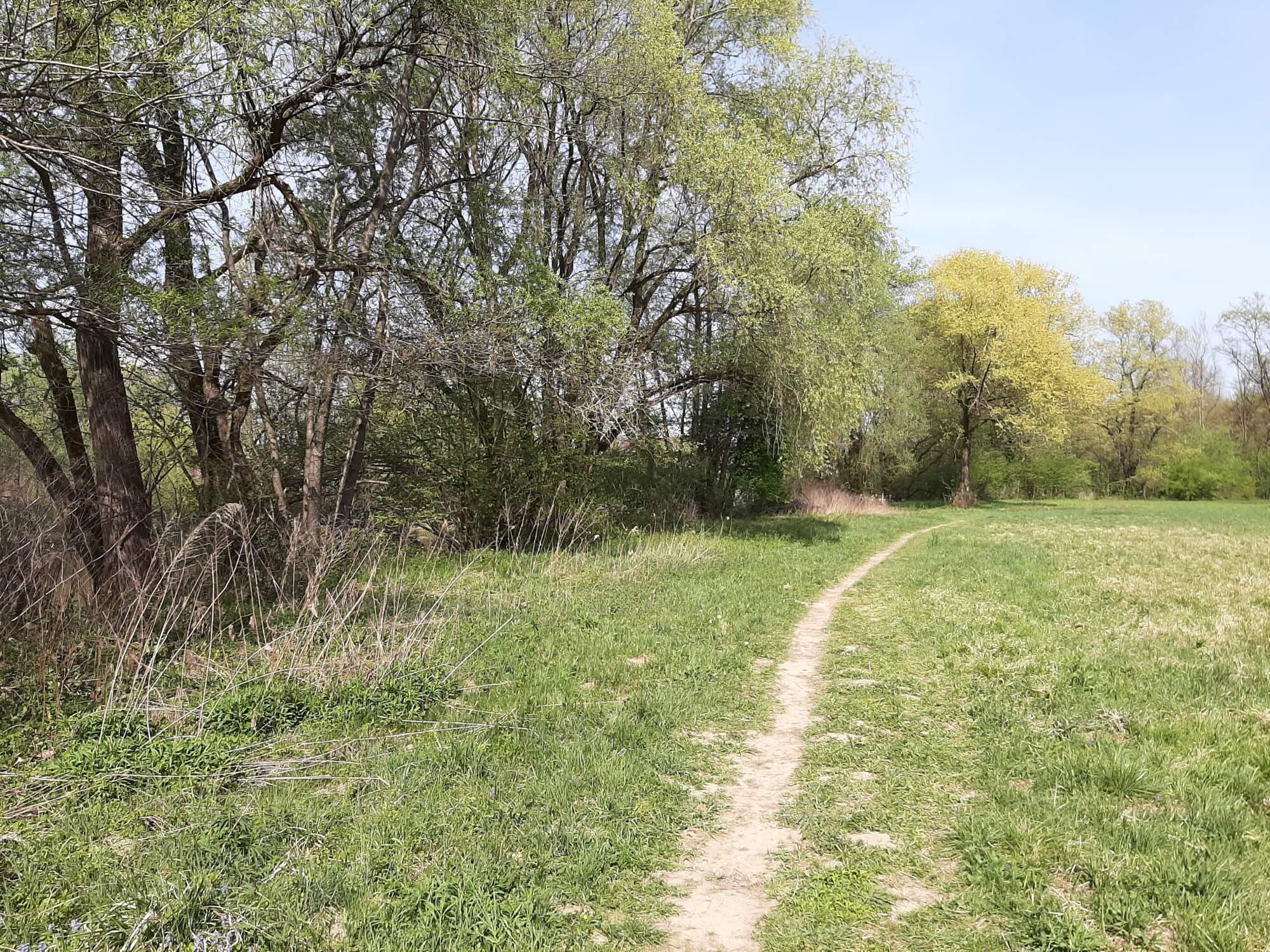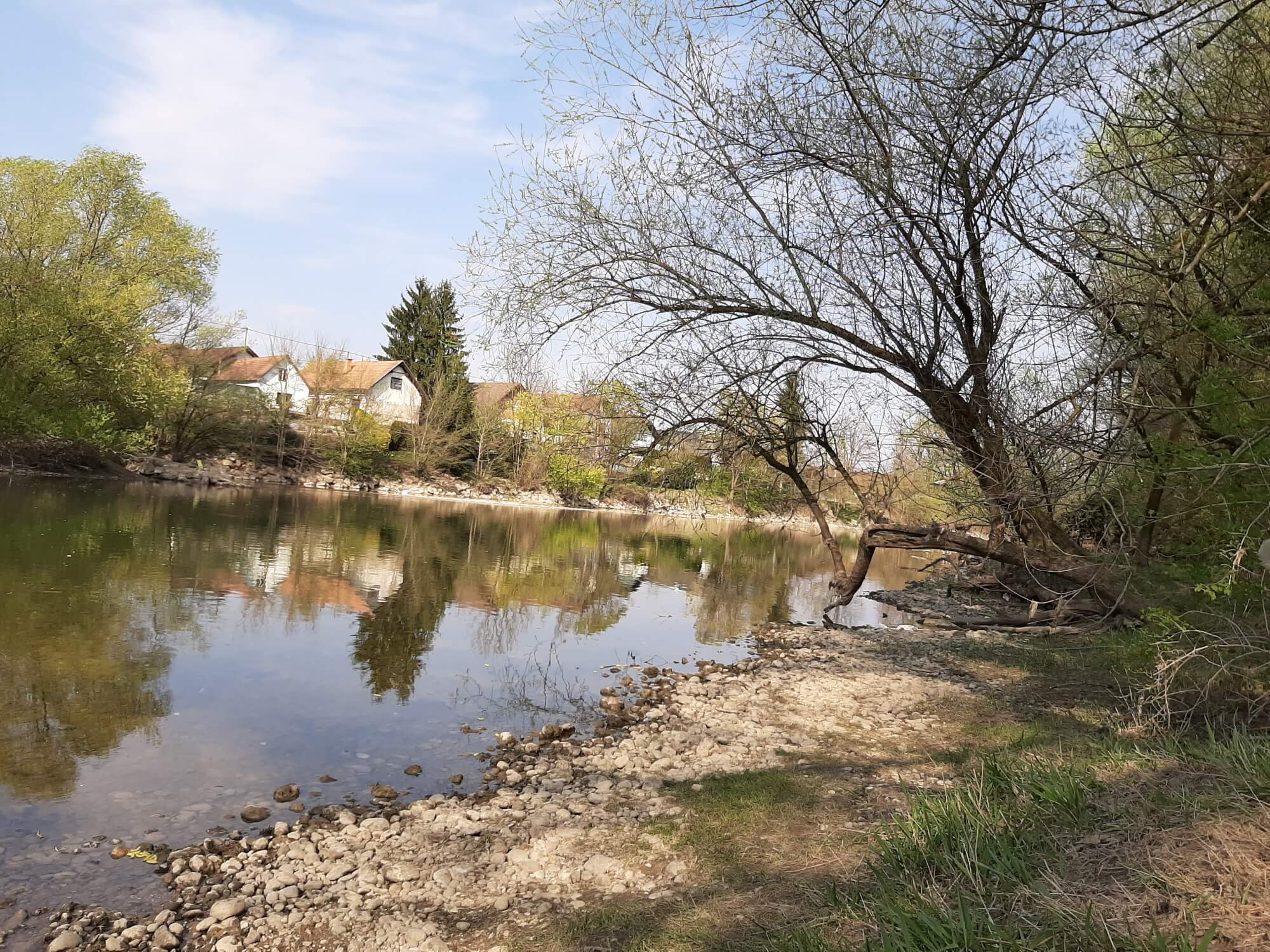Govt adopts second corona stimulus package worth over EUR 2bn
BRDO PRI KRANJU - The government adopted a second stimulus package to help the country overcome the coronavirus crisis and made some needed changes to the first package, PM Janez Janša announced after the government session in a video address. He did not state the exact amount of funds available in the second package, referring, however, to over EUR 2 billion. With this, the government has built a comprehensive financial cushion to overcome the epidemic and provided for the liquidity of the economy, he said. The two bills will be presented at news conferences from Wednesday to Friday. The first, EUR 3 billion package was adopted at the end of March and passed in early April, bringing measures to prevent layoffs, help the self-employed, pensioners and students and introducing bonuses for vital staff.
Agency for Commodity Reserves boss replaced amid criticism of contentious deals
LJUBLJANA - The government replaced Agency for Commodity Reserves director Anton Zakrajšek, who on Monday asked to be relieved of his duties after he recently fell ill with Covid-19. The agency, which has been subject to a barrage of criticism for potentially contentious protective equipment (PPE) deals, will be led as of Wednesday by Toni Rumpf, ex-Kobilarna Lipica stud farm boss, as acting director. Economy Minister Zdravko Počivalšek announced enhanced oversight of the agency and an internal audit, arguing "the procurement of protective equipment needs to conducted in a responsible and transparent manner. The agency was today also visited by the police, which is gathering information about suspicion of irregularities.
Finance Ministry urges banks to lend money to businesses
LJUBLJANA - The Finance Ministry urged banks to lend money to businesses, saying that state guarantees included in the newest corona crisis legislation package will apply to loans given to companies between 12 March and the end of 2020. The legislative package, which aims to boost liquidity of businesses, is being discussed by the government this afternoon and will be presented to the public tomorrow. It is expected to be passed and enter into force by the end of the month. "We urge banks to step up efforts to preserve liquidity because this is vital for a swift escape from the crisis and economic recovery," the ministry said.
Coronavirus case count up by nine, no new fatalities
LJUBLJANA - Slovenia's official tally of coronavirus cases rose by nine on Monday, bringing the total number of cases so far confirmed to 1,344. No new fatalities have been reported, leaving the death toll unchanged at 77. Fresh data from the government show that 87 Covid-19 patients were in hospital on Monday, the lowest number since 24 March. Of those, 25 were treated in intensive care, the lowest figure since 29 March. Four more people have been discharged from hospital, which means 197 Covid-19 patients have so far returned home from hospital.
Govt looking for solutions to nursing home residents with mild Covid-19
LJUBLJANA - As four nursing homes have accounted for over three quarters of all Covid-19 deaths in Slovenia, the Health Ministry has decided to move Covid-19-positive users of these homes who only have mild symptoms or are asymptomatic to one or more hospitals especially selected for this task. This is believed to prevent a further fast spread of the virus. Although it was first reported the Ptuj General Hospital agreed to admit 40 of what have been 82 Covid-19 positive residents of the nearby Ljutomer nursing home, Health Minister Tomaž Gantar said this would not be the case, because the hospital's staff is against. The Brežice General Hospital was also planned for this purpose, but now assistance for the infected residents of the Šmarje pri Jelšah nursing home could be provided by the hospitals in Celje in Maribor.
Pahor holds talks with new military chief
LJUBLJANA - President Borut Pahor, the commander-in-chief of the Slovenian Armed Forces (SAF), received Brigadier General Robert Glavaš, the new chief of the general staff, and Defence Minister Matej Tonin. Pahor notified Glavaš of the decision that he will soon be promoted to the rank of major general. Although promotions usually take place on 15 May, Slovenian Armed Forces Day, Glavaš will meet all the conditions in mid-December. The officials also discussed the annual SAF readiness report, which will reveal the state of the legacy handed down to the new chief of the general staff. Pahor is expected to unveil it to the public on 29 April.
Slovenia gains two spots on Press Freedom Index to 32nd
PARIS, France - Slovenia advanced two spots in the latest Press Freedom Index to 32nd place. It placed ahead of Slovakia and behind South Africa, and 32nd place actually equals its highest ranking since 2013. Slovenia also ranked that high in 2018. Reporters Without Borders (RSF) notes that problems for press freedom continue despite pressure from international NGOs for improvements, with defamation still criminalised and the ruling party stepping up its "campaigns of smears and threats against journalists".
Press freedom organisations write to EU Commission about Slovenian media
BRUSSELS, Belgium - Reporters Without Borders (RSF) and six other press freedom organisations urged the European Commission to put pressure on the Slovenian government and remind it of its responsibility to "protect the press, to ensure journalists are able to report independently, as well as to guarantee free and open access to information". The appeal was circulated in an open letter to the Commission on Monday evening and lists several examples of pressure on individual journalists and media outlets.
Epidemic prompts greater support for investment in agriculture
LJUBLJANA - The coronavirus crisis has prompted the Agriculture Ministry to draft changes to the Slovenian rural development programme 2014-2020 to provide greater support for investments aimed at securing greater and undisrupted food supply. As the seven-year programme is running out this year, the ministry said in a release it was preparing measures to boost the competitiveness, productivity and resilience of the agriculture sector and thus also facilitate food production.
Slovenia joins initiative promoting green economy after corona
LJUBLJANA - Slovenia joined on Monday an EU initiative aimed at making the economy green after the end of the coronavirus pandemic. The number of all participating countries, which would like the economy to be re-started based on green technologies and sustainability, has thus increased to 17. The initiative was launched by ten members on 9 April with a letter to the European Commission saying the measures designed to help the economy after the end of the crisis could stem from the European Green Deal, which seeks to make Europe a climate-neutral continent by 2050.
SAB proposes special fund for epidemic-related costs
LJUBLJANA - The opposition Alenka Bratušek Party (SAB) thinks the government should set up a special fund to finance all epidemic-related costs in a bid to maximise transparency of public spending. The SAB agrees the economy and people need state aid because of the epidemic, but warns that public money must be spent in a transparent, efficient, economical and legal manner. "If you ask the finance minister or prime minister today how much money have we already allocated for this crisis, I'm sure they are not able to give you that information off the top of their heads," SAB leader Alenka Bratušek argued.
Investment catalogue for Slovenia available online
LJUBLJANA - A catalogue of investment opportunities in Slovenia has been made available by the SPIRIT investment agency, featuring 80 projects for now, from a hydro-thermal power station and residential neighbourhoods to a foldable baby seat. The catalogue is available free of charge in Slovenian and English at investslovenia.org for potential investors as well as project developers. SPIRIT wants to expand it with as many projects as possible and has invited those looking for investors to enter their project.
Repatriation of Venezuelan Slovenians on hold over coronavirus
LJUBLJANA - The plan to repatriate Slovenians from Venezuela has been put on hold due to the coronavirus epidemic, with the authorities announcing that repatriation will resume as soon as possible. Twenty-one Slovenians had been repatriated from the South American country before the pandemic broke out. 15 more persons of Slovenian descent were expected to move to Slovenia in the second half of March and in April, but the plan is on hold since air links have been shut down, said Minister for Slovenians Abroad Helena Jaklitsch.
Two new checkpoints open on border with Italy
BOVEC/KRANJSKA GORA - While the majority of roads on the border between Slovenia and Italy remain blocked to contain the spread of coronavirus, a new entry point, Predel, opened today. Citizens can cross the border using a special certificate. Another border check point will be set up at Rateče on Wednesday. Both points, facilitating daily migrations between Italy and Slovenia, will be open on all days except Sundays and holidays, from 6am to 9am and from 3pm to 6pm.
Ljubljana University planning exit strategy, lowering credit points threshold
LJUBLJANA - The senate of the University of Ljubljana has called on its members to adjust the conditions required for students to advance to their next year of studies given that the teaching process has been disrupted despite a successful switch to remote learning. While the plan is to continue with remote classes, an exit strategy is in the making, Chancellor Igor Papič told the STA. He said the plan was to continue with remote classes also after 3 May where only possible, so that students are not exposed to risk unnecessarily. The faculties that are part of Slovenia's largest and oldest university have been urged to prepare for a gradual lifting of restrictions, and Papič announced an exit strategy would be drawn up.








